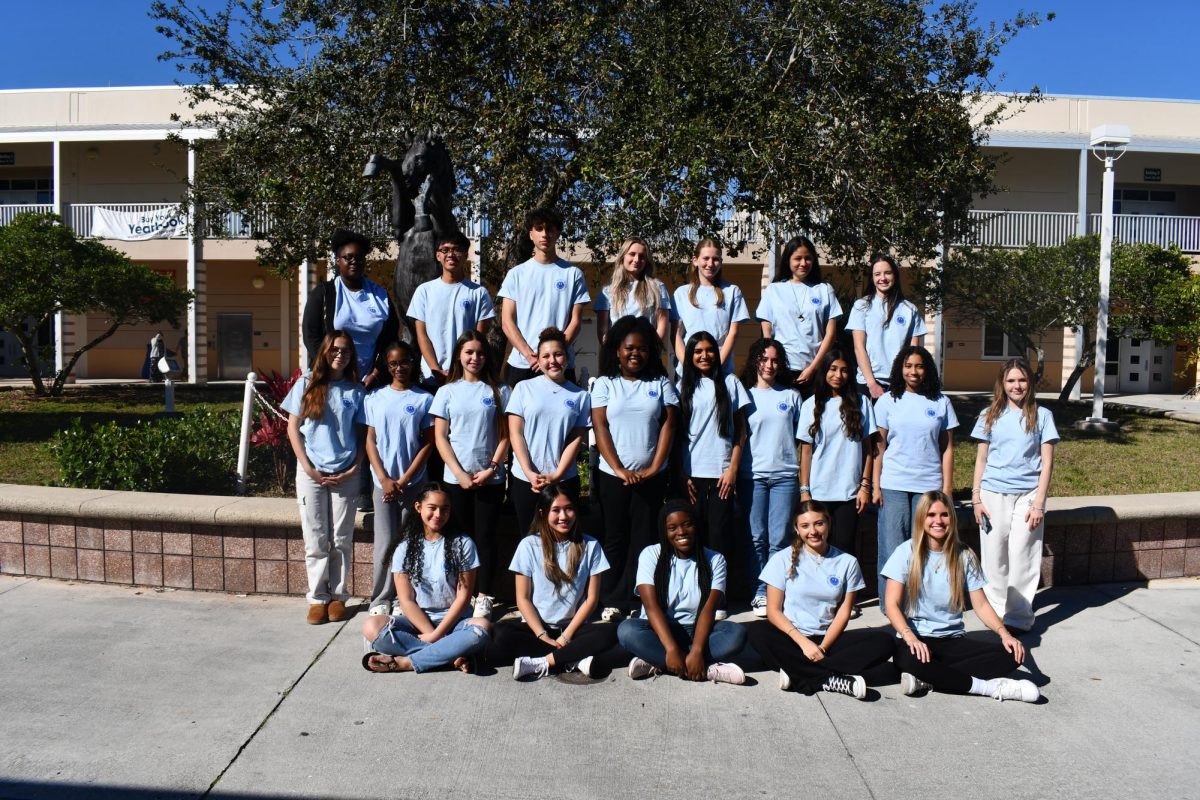Tune it up or tune it down: How athletes use music to hype them up
In order to boost their performance, many athletes will listen to music.
September 19, 2022
The crowd erupts with excitement as the players take the stage with high hopes of defeating their opponents. The only thing louder than the crowd is the music ringing through the speakers. As spectators we are energized by the music, but the real question is: Does it do the same for the players?
Looking closely in any given practice, you might spot an athlete singing along to music while on the bench. NHL Players Auston Matthews and Mitch Marner, forwards for the Toronto Maple Leafs, were caught singing Bon Jovi’s “Livin’on a Prayer” during a game against the Vancouver Canucks the Maple Leafs went on to win this game 6-3 with Matthews and Marner having a combined one goal and two assists. This makes us wonder if music really did play a part in their success.
There have been several studies to see if there is a direct correlation between music and athletes. One of these studies was done by Costas I. Karageorghis, who is a Professor of Sport & Exercise Psychology at Brunel University in the United Kingdom.
In the study, entitled “The Effects of Music in Exercise and Sport,” Karageorghis stated that “When used during physical activity, music can elicit positive affective states … and distract exercisers or athletes from the unpleasant sensations associated with physical effort and fatigue.”
And what about the Broncos? To gain more insight, some of Central’s finest varsity athletes weighed in on if music helps to motivate them or distract them when it comes game time.
“I prefer to listen to country music because that is my favorite type of music,” said senior and baseball player Kyle Baxt. Singers Luke Combs and Morgan Wallen are headliners for his playlist.
Though Baxt listens to music to stay “relaxed and focused during the game,” other Broncos use music to get hyped up before a game.
“If I did not have music I would not be as awake. It really helps to set my tone and mindset for the game,” explained senior Abigail Lofstead, who has played soccer, golf, lacrosse, and cross country.
According to the article “Music does more than hype athletes, it helps prep the brain for action” by Nicholas White the amygdala, a part of the brain that is responsible for processing emotions, becomes activated at the sound of music.
“When the amygdala is active it increases our ability to consolidate memories, which is why when we hear that emotional song before the big game …. you sort of trigger emotionally that part of your brain,” said assistant professor of speech and hearing science at Arizona State University Corianne Rogalsky.
In addition, listening to music before the game, there is also music being played during stoppage of play to hype up the fans.
Karageorghis, in his findings, mentioned that “ergogenic effects have been reported …. when participants have synchronized their movements with music ….” “Ergogenic” can be described as “anything that enhances physical performance.”
Senior lacrosse player, Jonathan Liu, appreciates the effect music has on him on the field.
“Music during a game motivates me,” Liu said. “Rap has a loud and fast beat which I would want to match that beat by putting in the effort.”
For some, even the type of music matters.
It’s always going to be [upbeat] worship music like Maverick City,” said senior volleyball player Christine Estime. “If not that, I’m listening to rap, soul, and R&B. I’d rather calm my mind before a game.”
Music may be part of the reason that athletes are motivated, but at the same time, is it possible that in the midst of Cloud 9, they become distracted by it? For some, like Estime, music can also be a distraction at times especially if broadcasted during a match.
“Music during a game is very distracting,” she explained. “I have so many thoughts already running through my head and having music added on top of that is only more overwhelming. It’s always great before a game [however] to hype up the team and the crowd.”
Either side will agree, however, that a song’s beat can be uplifting. “Our brains are really good at detecting familiar melodies or songs, so you don’t need words as you know, if you are listening to the radio and you hear those first few beats and you’re hooked,” Rogalsky said. “It only takes our brain a matter of a few seconds to hear those notes and instantly start thinking of those emotional memories again.”




